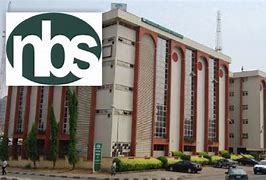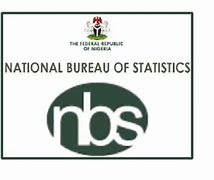Nigeria’s inflation rate surged to 34.6 percent in November 2024, up from 33.8 percent in October, according to the latest Consumer Price Index (CPI) report from the National Bureau of Statistics (NBS), released on Monday, December 16, 2024.
This marks a 0.72 percent increase in the inflation rate compared to the previous month, highlighting the ongoing economic pressures the country is facing.
In addition, the NBS provided a year-on-year comparison, revealing that inflation in November 2023 had been 28.20 percent. The report also noted that inflation in December 2023 had reached 28.92 percent, reflecting a 0.72 percent increase over the November 2023 figure.
 The NBS emphasised that this marked the continuation of rising inflation over the past year, with the December 2023 inflation rate being 7.58% higher than the same month in 2022, when it was 21.34 percent.
The NBS emphasised that this marked the continuation of rising inflation over the past year, with the December 2023 inflation rate being 7.58% higher than the same month in 2022, when it was 21.34 percent.
On a month-on-month basis, the headline inflation rate in December 2023 stood at 2.29 percent, slightly higher than the 2.09 percent recorded in November 2023. This indicated a higher rate of increase in the average price level in December compared to November.
Food inflation, a major concern for many Nigerians, saw a significant increase. In November 2024, food inflation rose to 39.93 percent year-on-year, up from 32.84 percent in November 2023. The NBS attributed this rise to higher prices for key food items such as yam, water yam, maize, rice, and various oils. On a month-on-month basis, food inflation also climbed, reaching 2.98 percent in November 2024, slightly up from 2.94 percent in October, driven by price increases in fish, rice, milk, and various meats.
The average annual food inflation rate for the 12 months ending November 2024 stood at 38.67 percent, a notable increase from the previous year’s rate of 27.09 percent.
Regionally, food inflation varied significantly across Nigeria. Bauchi, Kebbi, and Anambra states saw the highest food inflation rates, with Bauchi at 46.21 percent, Kebbi at 42.41 percent, and Anambra at 40.48 percent. Conversely, Delta, Benue, and Katsina had the lowest food inflation rates, at 26.47 percent, 28.98 percent, and 29.57 percent, respectively.
In terms of month-on-month food inflation, Yobe, Kebbi, and Anambra recorded the highest rates, with increases of 5.14 percent, 5.10 percent, and 4.88 percent, while the slowest increases were reported in Adamawa, Osun, and Kogi, at 0.95 percent, 1.12 percent, and 1.29 percent, respectively.





